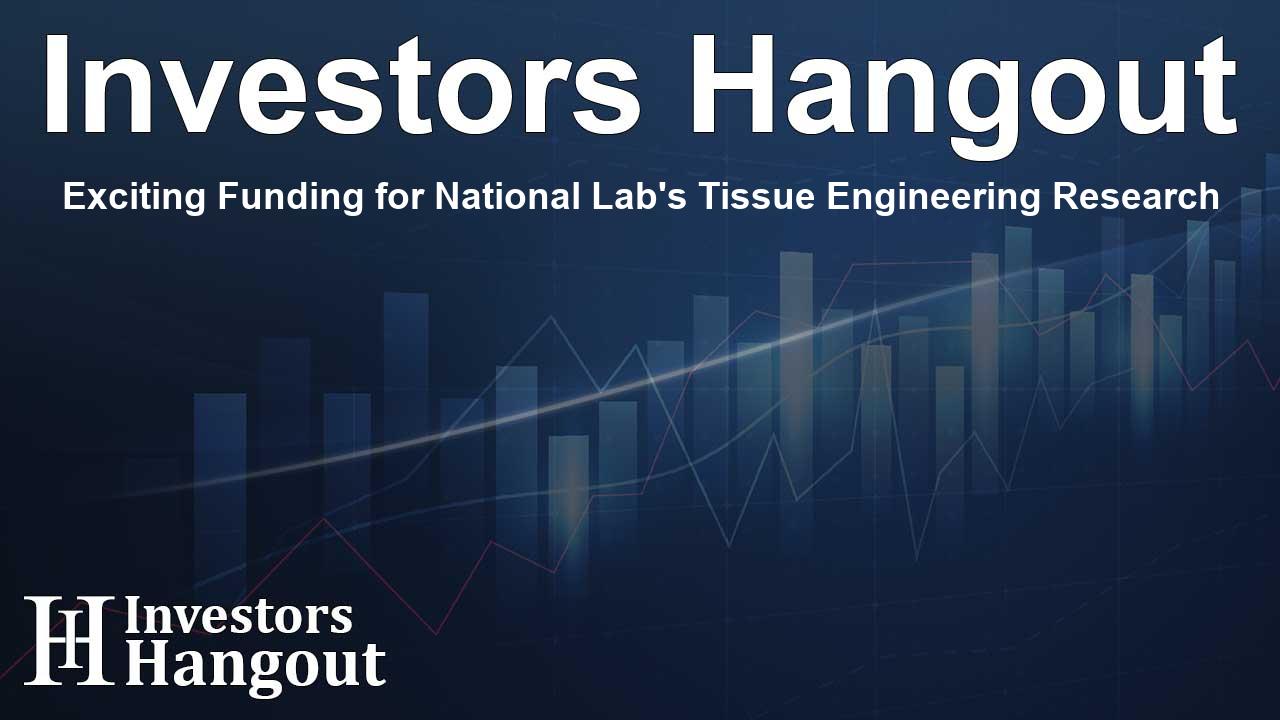Exciting Funding for National Lab's Tissue Engineering Research

Funding Announcement for Tissue Engineering Research
Solicitation now open for multiple awards supporting space-based tissue engineering and mechanobiology research
The U.S. National Science Foundation (NSF) has opened a solicitation for projects aimed at leveraging the International Space Station (ISS) National Laboratory to propel innovations in tissue engineering and mechanobiology research. With a substantial funding pool of up to $1.6 million available, this initiative encourages multiple projects that can exploit the unique conditions of space for transformative outcomes in healthcare and bioengineering.
Exploring the Impact of Microgravity
Microgravity environments have profound effects on living organisms, ranging from simple bacteria to complex human systems. These conditions cause notable alterations in gene expression and DNA regulation, and impact cellular functions extensively. By conducting research in such unique environments, scientists can enhance models of healthy and diseased tissues, improve disease diagnosis and treatment approaches, and contribute significantly to regenerative medicine and biomedicine.
The Role of ISS National Lab
As a strategic hub, the ISS National Lab focuses on fundamental science that can lead to significant advancements in various research fields. The knowledge gained from such studies is expected to have far-reaching implications for technology development and scientific progress. The Center for the Advancement of Science in Space™ (CASIS), which manages the ISS National Lab, collaborates with government bodies, including the NSF, to propel vital research initiatives forward.
Recent Advancements and Projects
A recent project launched as part of the NSF funding focus highlights the collaboration between Oregon State University and Texas Tech University Health Sciences Center. This collaboration capitalizes on 3D-bioprinted cardiac organoids to investigate the effects of microgravity on heart muscle cells. The findings from this research could shed light on muscle atrophy related to various conditions like cancer and diabetes, paving the way for innovative treatment approaches.
Proposal Submission Process
For interested researchers, the solicitation follows a two-step proposal process. Applicants must first submit an ISS National Lab Feasibility Review Form, which is essential for assessing the operational viability of their proposed concepts. The deadline for submitting this form is January 15, 2025. Only those proposals that pass the Feasibility Review will progress to the next stage, with full proposal submissions due by March 18, 2025.
Further Information and Opportunities
To learn more about this funding opportunity, including the submission guidelines for the Feasibility Review Form, researchers can visit the ISS National Lab’s official website. This platform offers valuable insights into the tremendous benefits of conducting research in the ISS environment, encouraging groundbreaking studies that can transform our understanding and utilization of science in the context of space.
About the ISS National Laboratory
The ISS National Laboratory serves as an unparalleled research and technology development facility that allows for investigations that would be impossible on Earth. By leveraging the ISS, researchers can enhance life quality on Earth, cultivate business models centered around space research, and foster a skilled workforce focusing on science and technology. CASIS manages the ISS National Lab under a Cooperative Agreement with NASA, granting access to its unique microgravity environment and unlocking opportunities for both scientific exploration and commercial endeavors.
Frequently Asked Questions
What is the purpose of the NSF funding announcement?
The NSF funding announcement aims to support innovative projects in tissue engineering and mechanobiology research utilizing the ISS National Laboratory.
How does microgravity affect biological research?
Microgravity can change gene expression and cellular functions, allowing researchers to better understand various biological processes and conditions.
What are the key dates for submitting proposals?
Interested researchers must submit a Feasibility Review Form by January 15, 2025, followed by the full proposal by March 18, 2025, if accepted.
Who manages the ISS National Laboratory?
The Center for the Advancement of Science in Space™ (CASIS) manages the ISS National Laboratory through a Cooperative Agreement with NASA.
What recent project exemplifies the kind of research being funded?
A collaborative project involving Oregon State University and Texas Tech University Health Sciences Center uses 3D-bioprinted cardiac organoids to study microgravity's effects on heart muscle cells.
About Investors Hangout
Investors Hangout is a leading online stock forum for financial discussion and learning, offering a wide range of free tools and resources. It draws in traders of all levels, who exchange market knowledge, investigate trading tactics, and keep an eye on industry developments in real time. Featuring financial articles, stock message boards, quotes, charts, company profiles, and live news updates. Through cooperative learning and a wealth of informational resources, it helps users from novices creating their first portfolios to experts honing their techniques. Join Investors Hangout today: https://investorshangout.com/
Disclaimer: The content of this article is solely for general informational purposes only; it does not represent legal, financial, or investment advice. Investors Hangout does not offer financial advice; the author is not a licensed financial advisor. Consult a qualified advisor before making any financial or investment decisions based on this article. The author's interpretation of publicly available data shapes the opinions presented here; as a result, they should not be taken as advice to purchase, sell, or hold any securities mentioned or any other investments. The author does not guarantee the accuracy, completeness, or timeliness of any material, providing it "as is." Information and market conditions may change; past performance is not indicative of future outcomes. If any of the material offered here is inaccurate, please contact us for corrections.